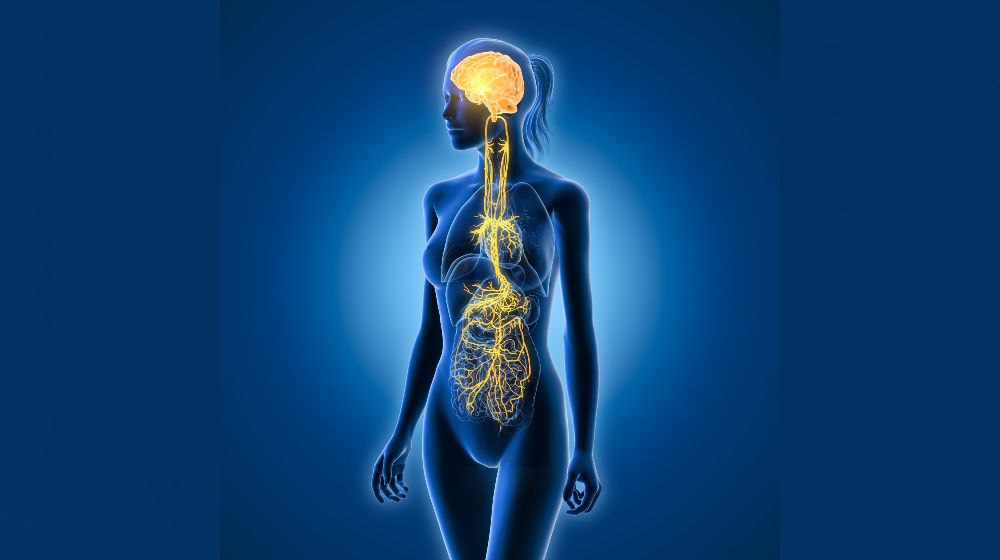Dysautonomia, What is it and Why should you be Worried?
S. Sean Suvanadesa , Thailand May 30, 2025
The Well-Oiled Automaton
Our bodies are absolutely wondrous in every way. Within them are millions of individual cogs that are constantly working and turning to make us the complete living, breathing machines that we are. But what happens when a few of those cogs stop turning? It's nothing too serious, fortunately there are other cogs that can turn harder and faster to pick up the slack, but then what happens when it's no longer a few cogs, but many of them?
The above scenario is a very basic and simple way of explaining what dysautonomia essentially causes. What exactly is dysautonomia, and who of us has this issue?
While you're busy living your life, there are an endless amount of automated processes that your body is conducting that make that living possible. The normal human body knows how much air to take in, how much energy is needed for optimal function, how much waste to secrete, what living and non-living cells it needs to drive out and exterminate, and so on. Because these processes are automated, you won't pay much notice to them because they come effortlessly and naturally. You still probably won't pay too much mind when a few of those functions aren't as efficient as they used to be. They're just issues that begin showing up with age, right?
You'll definitely take notice when those functions no longer operate as intended.
Dysautonomia, and why We've Never Heard of it
Why isn't dysautonomia a more common term in the lay person's medical lexicon? The rarity of very severe cases such as my own is part of the reason, some people can have versions of it that don't impair their day to day life, and really does come off as just issues with getting older.
The other reason we don't hear of dysautonomia is the difficulty in treating it when it gets as severe as it does.
A Frustrating Scenario
Dysautonomia is incredibly difficult to diagnose because conventional medicine dictates that there needs to be hard evidence of bodily dysfunction based off of readings and tests taken at a hospital by a medical specialist. As an example, someone that has frequent and urgent urination of a dark color might be sent to a nephrologist for examination. The nephrologist might take a blood and urine sample and could end up finding elevated creatinine levels within the urine, or perhaps lower blood urea nitrogen. This would potentially indicate kidney, or even possibly liver issues. Despite treatment, and even improved numbers, the problem still persists or possibly even worsens. Maybe the issue is the bladder, so a urinary ultrasound is taken, but no structural problems are detected. The specialist then may refer a different medical department or suggest a wait and see approach seeing as the readings don't indicate a serious issue.
As you're waiting for answers, a few other things begin to go wrong. Along with the urological issues come respiratory issues. Now it takes more effort to take in a full breath of air. A visit to the pulmonologist doesn't reveal anything concrete. General malaise begins to set in as more and more things go wrong little by little over time.
The above scenario represents the dysautonomia conundrum. Something is seriously wrong, but the tests and readings tend to not indicate any immediate solutions.
The problem here is a functional issue as opposed to a structural one.
Structure vs. Function
Structural issues are straightforward, you can determine a problem through a set of readings, then there are solutions to that problem due to the many years of medical science, history, and practice that have gone into solving it. For example, if there's a problem with your lungs then an x-ray, or a tissue sample, etc. may reveal the problem and then there would be a following set of steps in accordance to deal with it.
Functional issues differ because the structure of an organ or system is intact enough that readings and tests appear normal, but somehow they no longer operate optimally or normally. Sometimes a structural problem is found, but resolving it may partially alleviate the dysfunction, or maybe it won't at all.
Why is there an issue? It all happens to do with the body's ability to communicate with the brain and vice-versa. The problem isn't with an organ, or system itself, but rather with the messaging between it and the brain. Once this connection is severed, the part of the body effected by this severance no longer understands the correct way to function.
A common example that can be found with many people that suffer from severe dysautonomia would be the workings of the bladder. The body understands to release the waste contents of the bladder when it's full. It knows when to do it, and you know when it very much requires you to do so. An urge to let out those fluids builds up as the bladder fills, and then there's great urgency to release it when it's completely full in order to make room for more waste. If the connection between the bladder and the brain is severed, then it may no longer understand when is the appropriate time to release all fluids. The bladder might give the sense of urgency to release it at half capacity, or a quarter capacity.
If it's bad enough, it might feel the need to release fluids the moment water enters your body.
I've gone through the above scenario. It's not pleasant to be dehydrated all the time no matter how much water you drink, nor was it fun to lose 5kg (more than 10 lbs.) in a day of water weight. You can also get an idea on how this might affect the day to day life considering that plans have to be made on how to drink fluids, and the proximity you have to be from a restroom at all times.
Who Deals with an Indiscernible Issue?
The primary option for someone suffering from dysautonomia is to visit a functional specialist.
Functional specialists are forced to look at the body as a whole, with all of the aforementioned millions of cogs all turning and working together to keep the human machine running. In order to understand and figure out what's possibly causing the dysfunction, the functional specialist will have to observe the same things a normal medical specialist would such as dietary, and lifestyle habits, but the analysis to treat these issues differ. While they may observe an organ system for clues, they're main goal is to find out the root cause of what's causing the severance in the body's ability to communicate with the brain.
What gives? How does this get dealt with?
In my last post, I announced I'd be revisiting digestive issues and their effects on the human body. Why is a dysautonomia post following it?
While I wish I could give a one size fits all cause for dysautonomia, I can't. The same way that regular medical specialists are unable to, since the source may come from a single problem, or possibly a multitude of them.
However, seeing as my posts tend to deal with the digestive system, I can offer that a common occurrence of these autonomic issues starts in your stomach and works its way from there. Malnutrition and malabsorption of your dietary intake is an easy way for the bodily autonomic functions to begin misfiring over time. Also consider the connection that your gut has with the rest of the body. Your immune system is located there, so is the vagus nerve, which pretty much acts as the information superhighway for all of the signals going to and coming from the brain. People with extended gut problems can easily find themselves in a dire situation once the vagus nerve becomes damaged.
Closing Words
I know there are people out there that are dealing with severe dysautonomia, believe me, I know how bad it can get. If any of you suffering through it happen to stumble upon this blog, just know there's definitely a light at the end of the tunnel. It gets better the moment you find whatever's causing that severance of communication between your body and your brain and deal with it. I've been working on healing through it for four months since the writing of this blog post, and I can definitely say things are moving in the right direction. It's not anywhere close to being fully healed, but at least it's manageable now. There's definitely hope that someday I could one day going back to living a normal life again, and that hope definitely wasn't there before the start of 2025.
For those who want to make sure that dysautonomia never rears its ugly head then eat right and exercise. It's cliche` and said to death but for good reason.
 Login with Google
Login with Google
 Signin with Apple
Signin with Apple

Login to Comment